PALESTINE ORGANIZERS WIN: Divestment from Israel Becomes Policy for Alameda County
After a long campaign, organizers moved the county Board of Supervisors to adopt the Ethical Investment Policy on October 3. There is only one more procedural hurdle before full implementation.

Alameda County has become the first U.S. county to adopt an Ethical Investment Policy (EIP) that effectively prohibits investment of public funds in companies with substantial ties to the occupation and genocide in Gaza, in a major victory for the Boycott, Divestment, Sanctions (BDS) movement. At a special meeting yesterday, the Alameda County Board of Supervisors voted in support of an EIP that bars investment in “companies that consistently, knowingly and directly facilitate and enable severe violations of human rights” and also discourages investment in the fossil fuel, private prison, and other socially harmful industries. The Board decided, however, to delay implementation of the policy until it could be reviewed by an outside consultant.
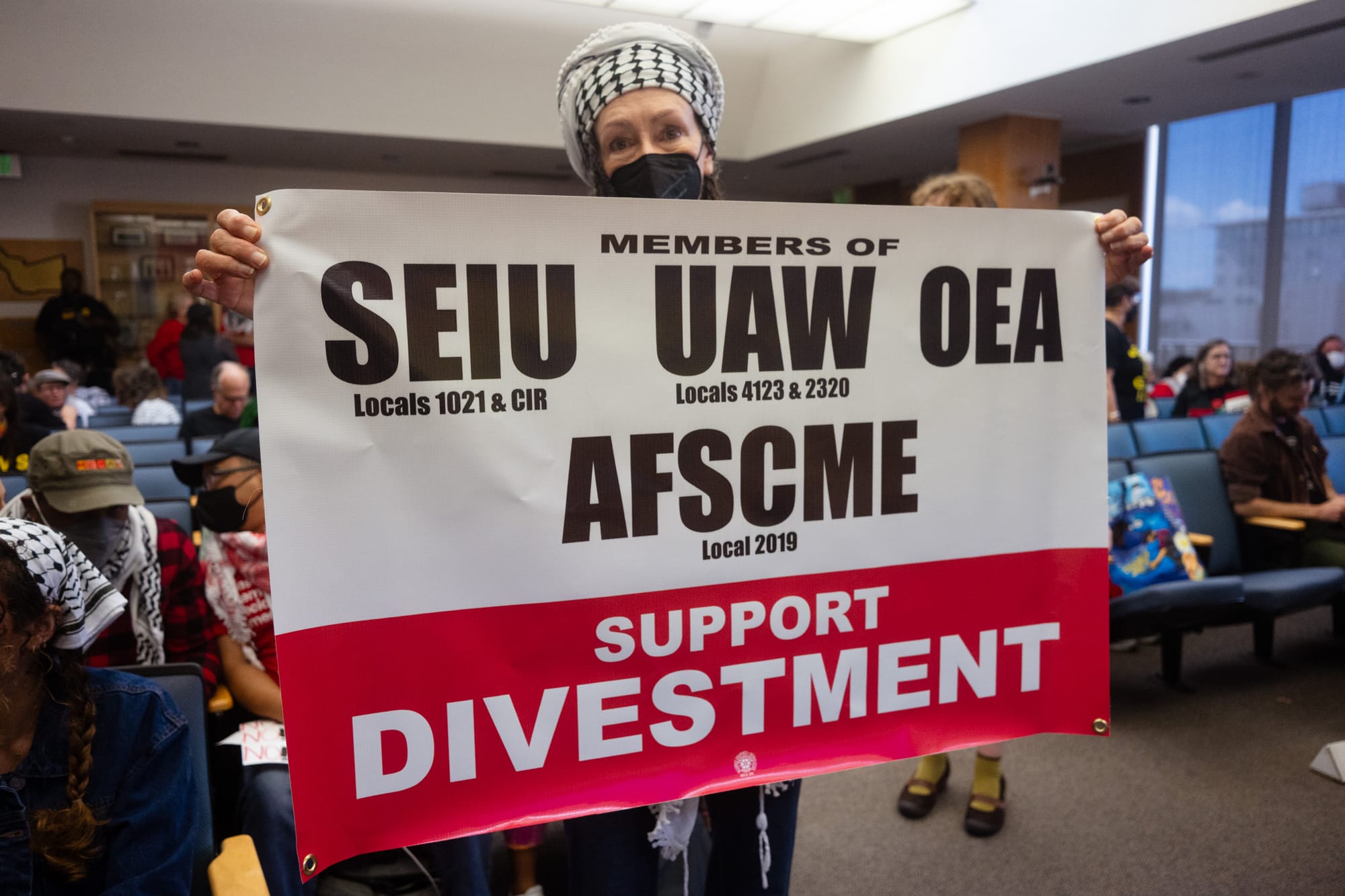
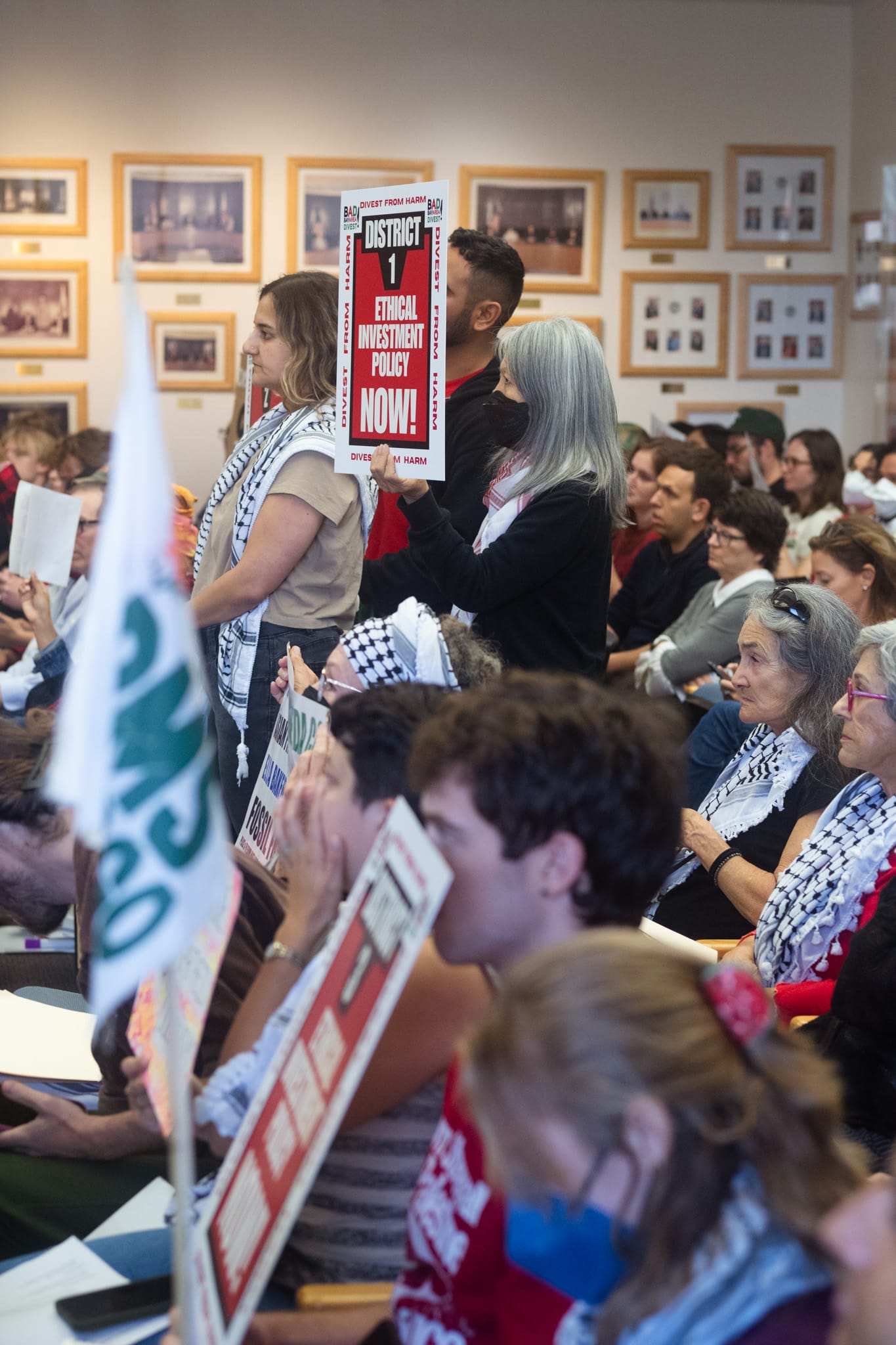
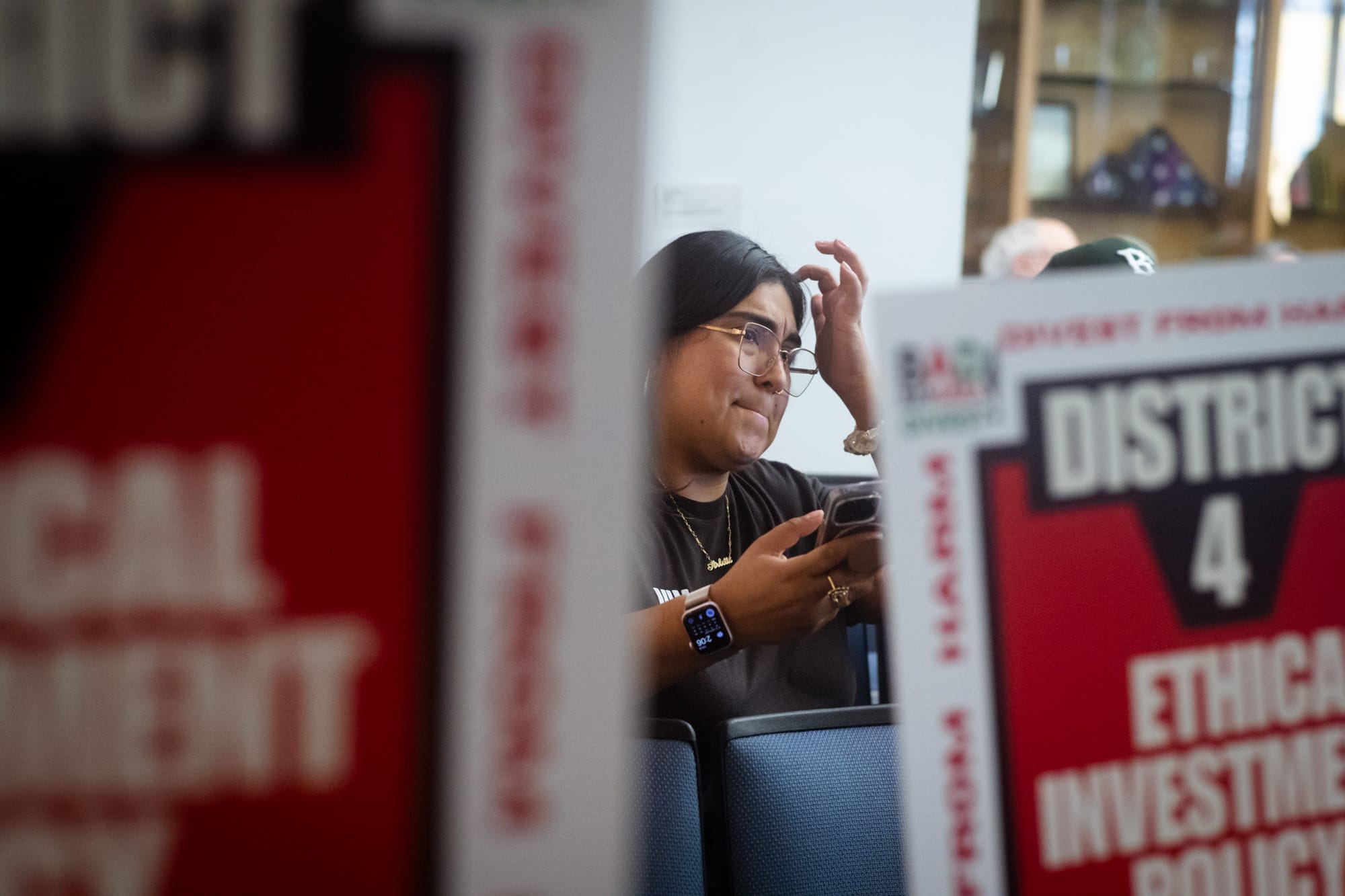

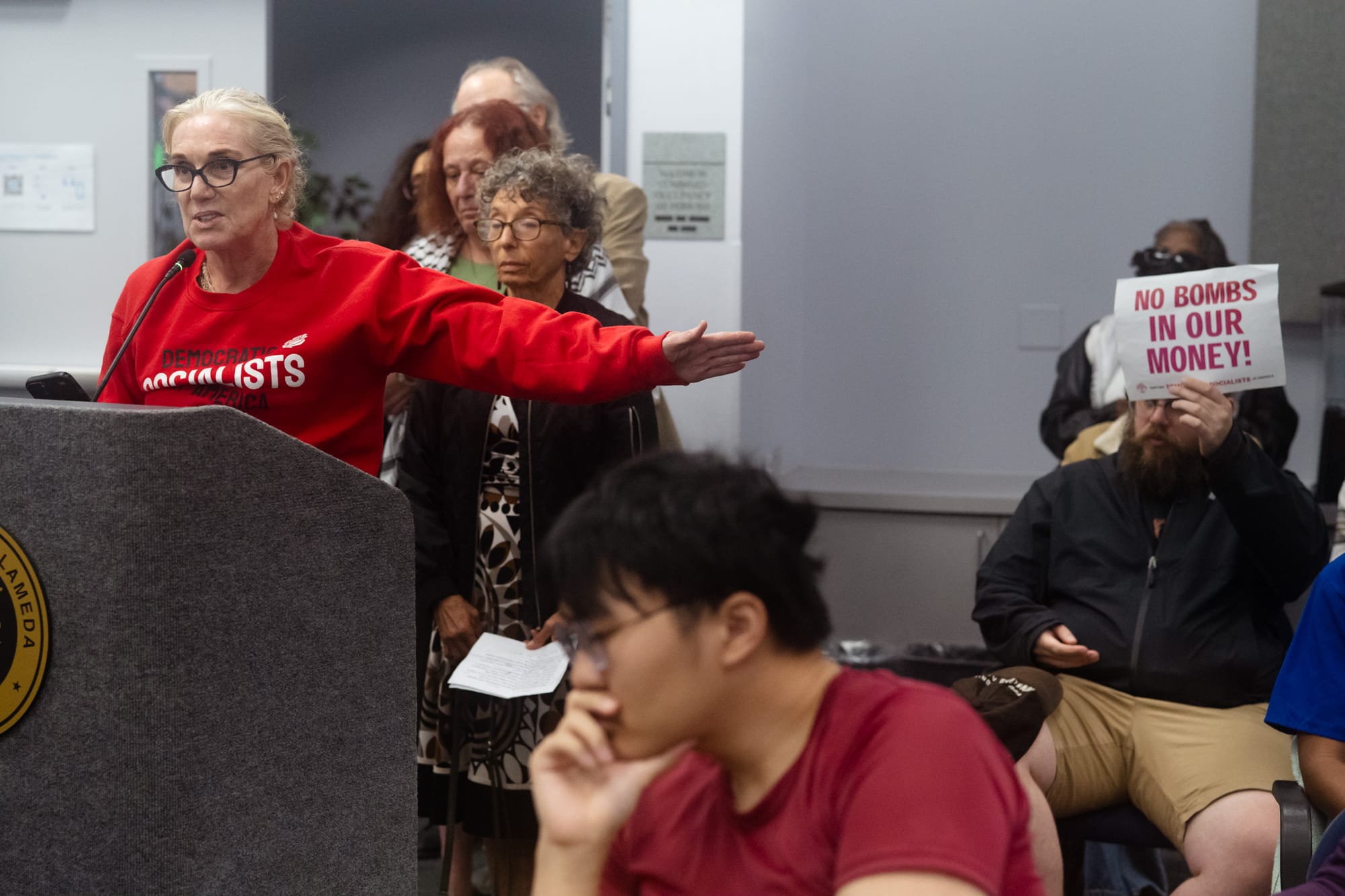
Scenes from the Alameda County Board of Supervisors meeting on October 3, 2025. Because so many supporters came, an overflow room was opened. (Photos: Matt Takaichi)
“I’m super excited that we managed to adopt the Ethical Investment Policy,” said Hannah Gramling, who came to the special meeting to show her support for the EIP, along with hundreds of other Alameda residents, many of whom wore keffiyehs and held homemade signs. “We’re a little disappointed that there’s yet another procedural hoop to jump through [before the policy is implemented], but I think this is a huge win for us and for the 18 months of organizing that we’ve done.”
Nikki Fortunato Bas was the only supervisor on the five-member Board to vote against the delay, saying the County should implement the policy immediately as written.
The policy does not explicitly mention Israeli war crimes or the genocide in Gaza, but the Palestinian cause is its central impetus. Its adoption comes as the result of months of pressure from a coalition of Bay Area pro-Palestine organizations, including Bay Area Labor for Palestine, the Palestinian Youth Movement (PYM), the Arab Resource and Organizing Center (AROC), Jewish Voice for Peace (JVP), SEIU 1021, and the Divest from Apartheid Campaign of the East Bay Democratic Socialists of America (EBDSA).
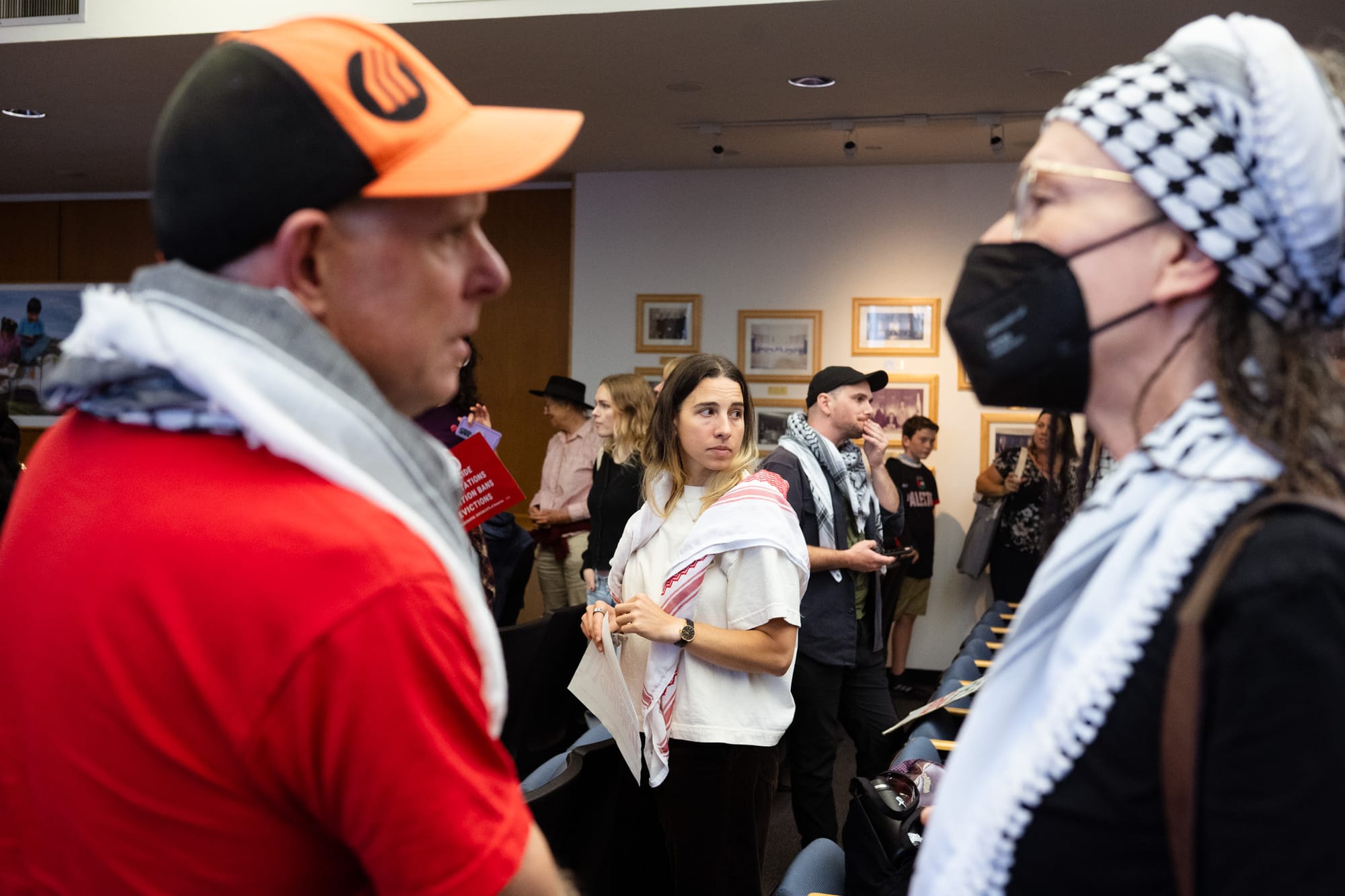
In the aftermath of October 7th 2023, BDS organizing in Alameda County has led to a number of municipal divestment measures: in 2024, Hayward and Richmond were the first two U.S. cities to divest from the occupation of Palestine, and the city of Dublin passed an EIP last month.
The Bay Area BDS movement’s first win at the county level came last year in December, when Alameda County Treasurer Henry Levy agreed to sell the County’s $32 million stake in Caterpillar Inc., an American company that manufactures bulldozers used by the IDF to demolish Palestinians’ homes and other vital infrastructure. That decision made Alameda County the first U.S. county to divest from a company because of its role in the genocide.
But a comprehensive EIP is necessary to enshrine that decision as official County policy, as well as to prevent future County officials from reversing it or making new investments in unethical enterprises, said Vish Soroushian, co-chair of EBDSA’s Divest from Apartheid committee.
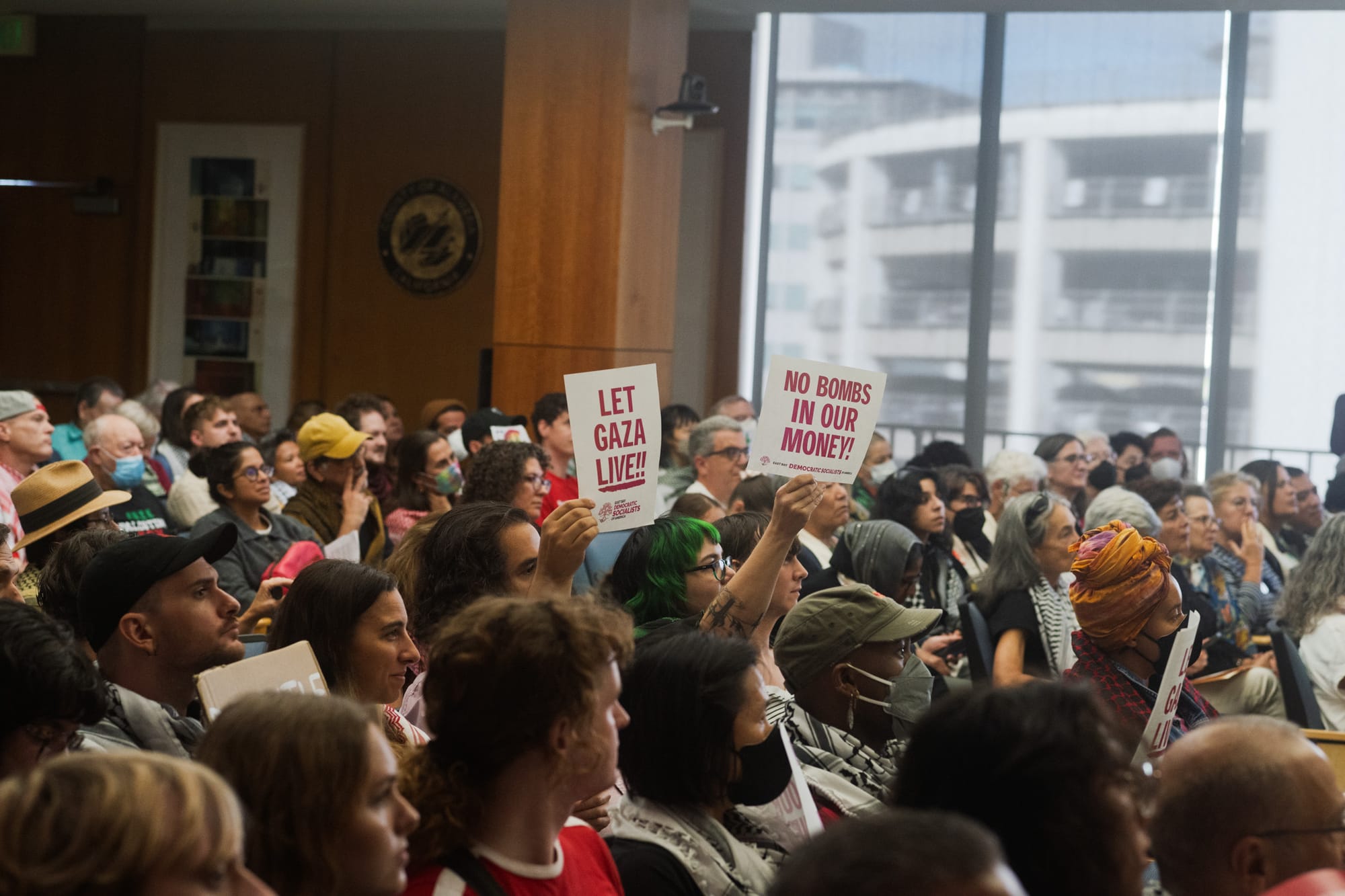
“We want to make sure that, going forward, we don’t have classic villains like Caterpillar in our portfolio,” Soroushian said. “And so we want to make sure that there are clear guidelines in place, so that when the next treasurer comes along, they know what they can and can’t do with our public funds.”
Alameda County has historically been in the vanguard of divestment movements in the U.S. In 1985 the County divested from the apartheid government of South Africa, and in 1996, the County prohibited public investment in the government of Burma (now Myanmar) over war crimes committed there by state forces.
The Bay Area BDS movement’s first win at the county level came last year in December, when Alameda County Treasurer Henry Levy agreed to sell the County’s $32 million stake in Caterpillar Inc., an American company that manufactures bulldozers used by the IDF to demolish Palestinians’ homes and other vital infrastructure.
“We are hoping that this opens up the floodgates for other counties to go ahead with this work as well,” Soroushian said. “If people are talking about this all over the state, all over the country, and people are inspired to light a flame under their county and state governments, … that’s when BDS is effective. That’s when capital is pulling out of Israel, that’s when we’re really accomplishing what our comrades did decades ago with South Africa.”
It’s taken a variety of tactics–and a lot of perseverance–for the Alameda County divestment campaign to reach this point. After the sale of the County’s Caterpillar bonds, community members continued to pressure the Board, showing up to meetings and submitting public comments in support of the EIP, making hundreds of phone calls, and sending a continuous barrage of emails to members of the Board. This pressure was necessary, Soroushian said, to force the Board to follow through on its commitments and schedule yesterday’s vote on the policy, over the objections of aggressive and well-funded Zionist interest groups.
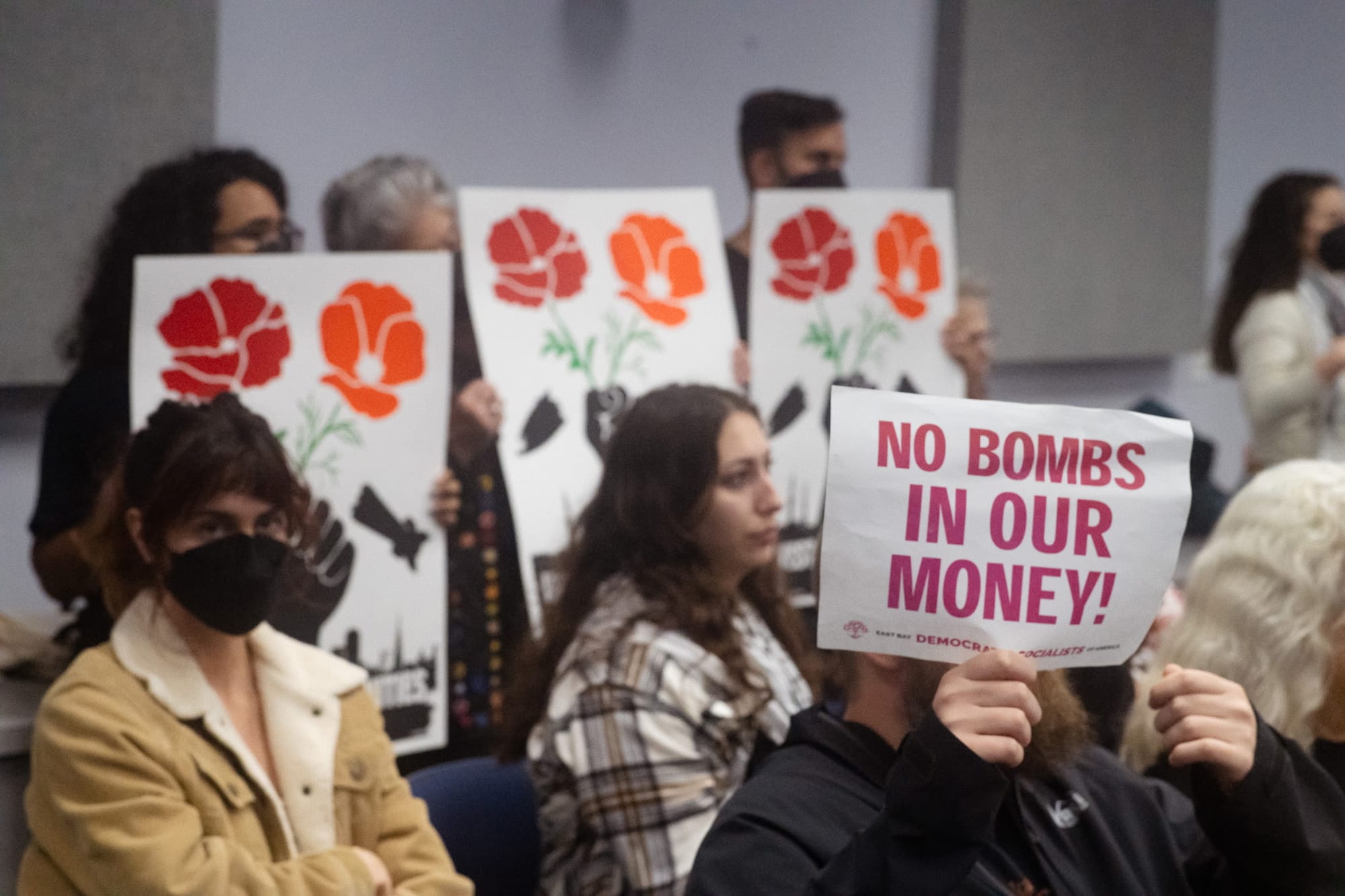
Now, with the board’s decision to delay the policy’s implementation, the pressure campaign will continue. “We’re going to keep organizing to ensure that the review is quick and thorough and comes back for a vote soon–and that the vote is a yes,” Gramling said.
Soroushian and Tim Drew, also co-chair of EBDSA’s Divest from Apartheid committee, both said they were also hoping to channel their campaign’s energy into the Oakland People’s Arms Embargo, a PYM- and AROC-led effort to block Israeli arms shipments through the Oakland International Airport. The embargo would build on the longstanding efforts of union dockworkers in the International Longshore and Warehouse Union (ILWU), who for several years have effectively blocked Israeli ships from docking at the port of Oakland.
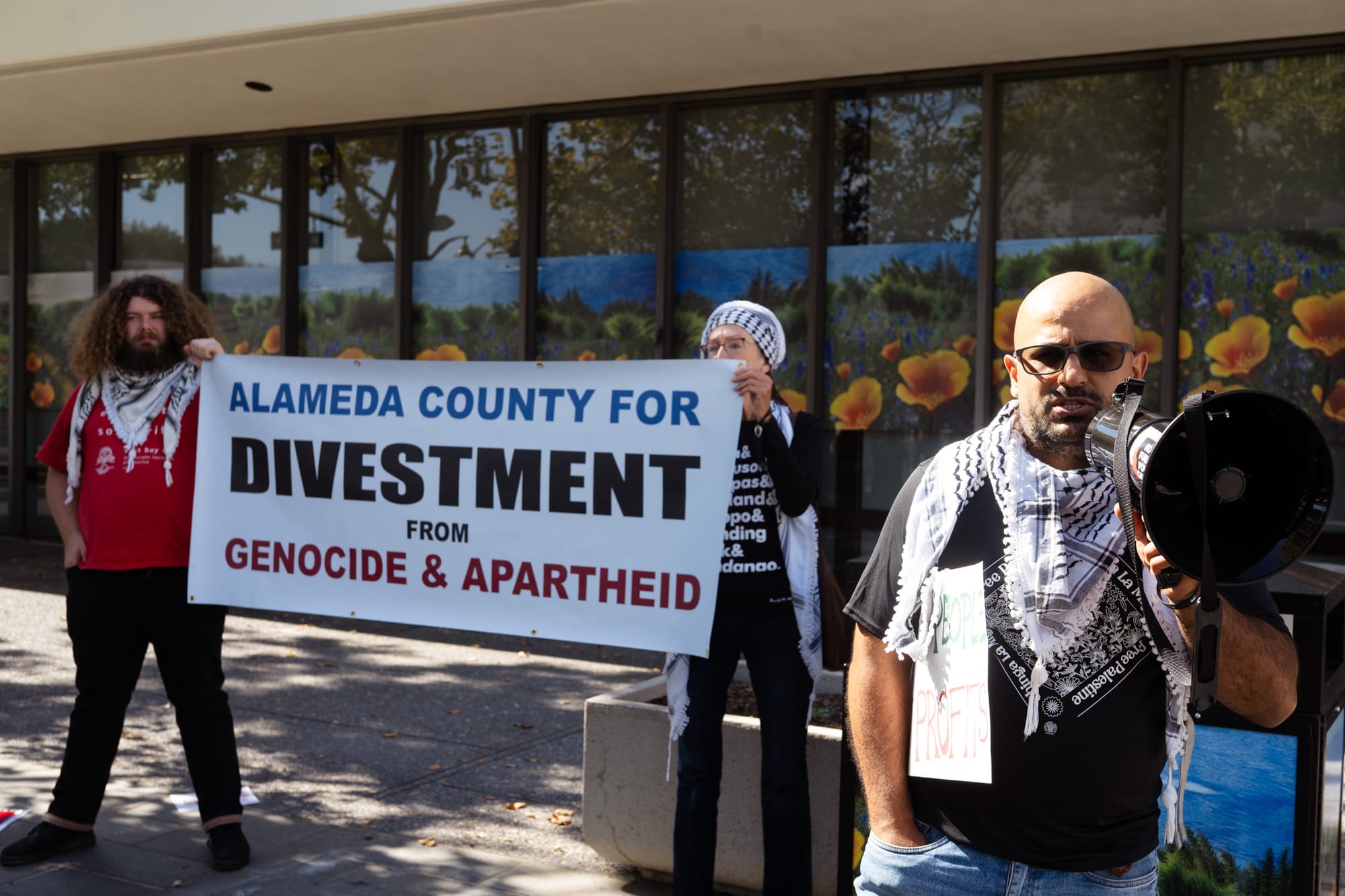
“If we can draw attention to the fact that FedEx, an awful corporation, is shipping military equipment to Israel using property that’s owned by the City of Oakland, and if we can cause disruptions to that supply chain, it could have a material effect on the Israeli conduct of the genocide in Gaza,” Drew said. “Supply chain disruption causes [Israel] to make fewer flights with their F-35 jets. That means fewer 2000-pound bombs dropped on the civilian population of Gaza.”
The BDS movement has a long way to go, but for now, “It feels good,” Soroushian said. “We’ve been another seed planted on the path towards achieving BDS.”
Correction, Oct 6, 2025: a previous sentence suggested that the new policy would bar investments in various industries. The policy, however, discourages such investments. This was corrected above.
Note: Reporting for this article was supported by Matt Takaichi.





